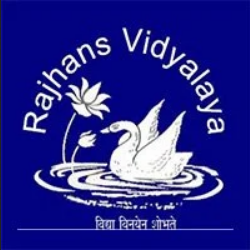BUDGET HIGHLIGHTS – 31 JULY 2024
About This Activity
Introduction
A session on the Budget Highlights 2024-25 was conducted for the students of Std. XI & XII on 31 July 2024 to educate students about the key features and implications of the national budget. The session aimed to provide an in-depth understanding of the budgetary allocations, policy changes, and their potential impact on different sectors, including education, health, infrastructure, and economy.
Objectives
- To explain the key highlights of the Budget 2024-25.
- To discuss the economic and social implications of the budget.
- To engage students in discussions about fiscal policy and public finance.
- To provide a platform for students to ask questions and express their opinions.
Session Overview
The session commenced with emphasis on the importance of understanding the national budget and its impact on the country's development. The teachers’ highlighted the role of informed citizens in shaping a democratic society.
The teachers’ delivered a comprehensive presentation on the Budget 2024-25 which included the following:
- Economic Growth and Development:
- Projected GDP growth rate for the fiscal year.
- Major investments in infrastructure projects.
- Initiatives to boost the manufacturing sector.
- Education Sector:
- Increased allocation for primary and secondary education.
- New scholarships and funding for higher education.
- Emphasis on vocational training and skill development programs.
- Health Sector:
- Expansion of healthcare infrastructure.
- Introduction of new health schemes and insurance coverage.
- Budget for research and development in the medical field.
- Social Welfare:
- Initiatives for poverty alleviation.
- Programs aimed at women and child welfare.
- Enhancement of social security schemes.
- Taxation:
- Changes in income tax slabs.
- Revisions in corporate tax rates.
- Introduction of new tax incentives for startups and small businesses.
- Sustainable Development:
- Budgetary provisions for renewable energy projects.
- Policies to promote environmental conservation.
- Funding for sustainable agriculture practices.
The presentation was followed by an interactive Q&A session, where students raised pertinent questions about various aspects of the budget. Some of the key questions and discussions included:
- The impact of increased education funding on quality and accessibility.
- How the new healthcare schemes would be implemented and monitored.
- The effectiveness of tax incentives in promoting entrepreneurship.
- Strategies to ensure the sustainable use of allocated funds for environmental projects.
The session was well-received, with students expressing a better understanding of the budgetary process and its significance. Feedback was collected from the attendees, with most students appreciating the analysis and the opportunity to engage in meaningful discussions.





